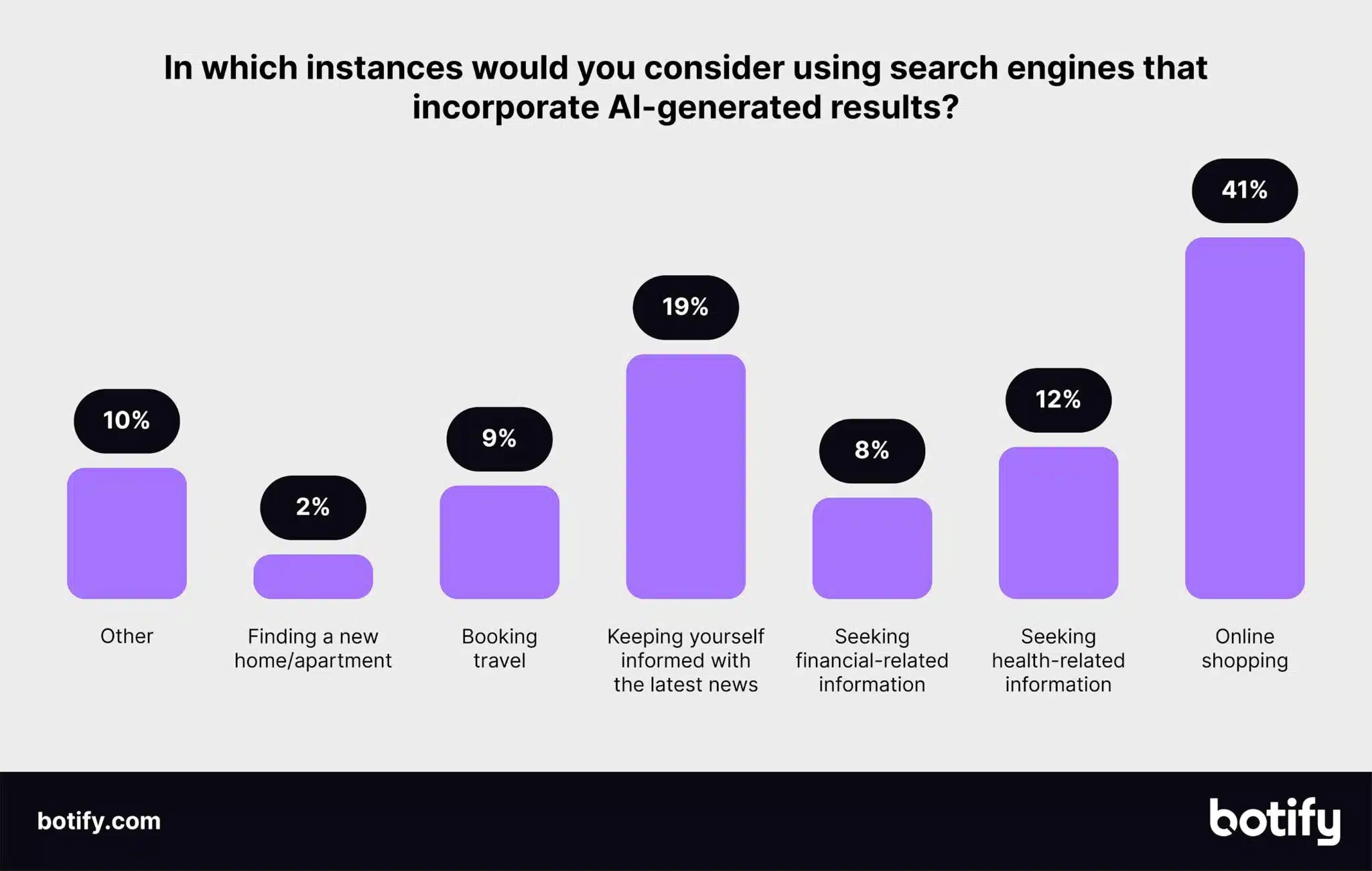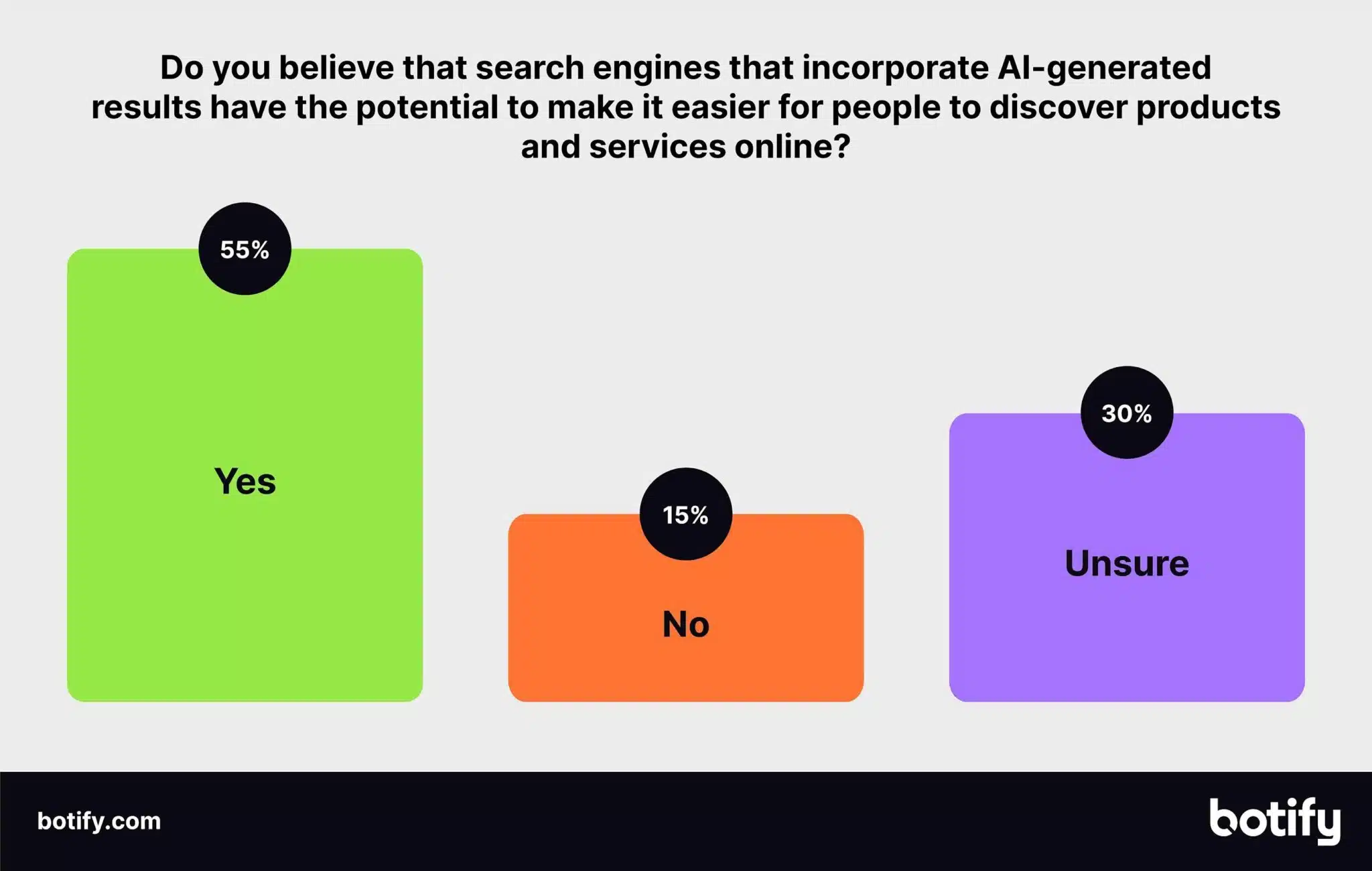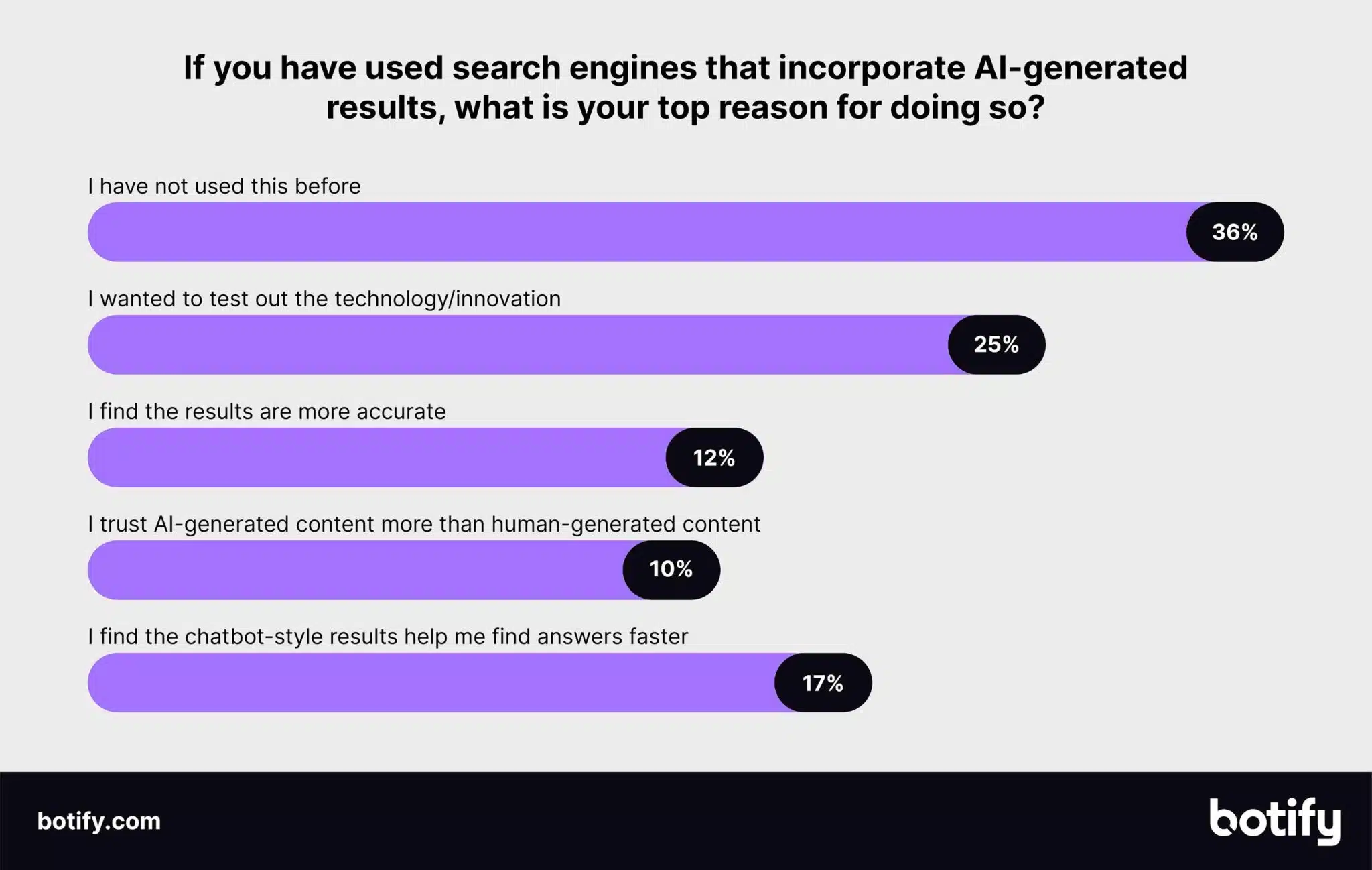Search engines that incorporate AI-generated results have the potential to make it easier for people to discover products and services, according to a new survey from Botify, shared exclusively with Search Engine Land.
Why we care. Search marketers tend to look at search much differently than everyday Google Search users. So it’s interesting to see what consumers know and think about AI-powered search. The data is a good reminder that user behavior is always slow to change, so don’t expect a quick transition from Classic Search to AI Search.
By the numbers. Some interesting findings from Botify’s survey:
- 44% of respondents were familiar with generative search – 58% of Millennials and 58% of Gen Z were most familiar; 74% of Baby Boomers were unfamiliar with it.
- 37% of respondents tried an AI-driven search engine and found the results more satisfying.
- 34% said the way they search on AI Search hasn’t changed; 28% said they make “more detailed” search queries; 9% said they write longer prompts.
- 56% of respondents, when asked to choose between two results pages for the same query, preferred AI-generated results over traditional search results.
Online shopping. Forty-one percent of respondents said the top reason for using AI search was for online shopping. Other top reasons to use it were for keeping up with the latest news (19%) and seeking health-related information (12%).

- Meanwhile, a majority of respondents (55%) said “Yes,” they believe search engines that incorporate AI-generated results have the potential to make it easier for people to discover products and services.

Faster answers. While 36% of respondents haven’t used AI search, 25% of consumers have – and mainly to test out the new technology.
- Meanwhile, 17% said their top reason for using AI-powered search was because the chatbot-style results helped them find answers faster.

About the survey. The data was collected by Dynata, an independent market research company, on behalf of Botify. The survey of 1,000 US respondents, aged 18+, was conducted in February.
New on Search Engine Land
Source link : Searchengineland.com
